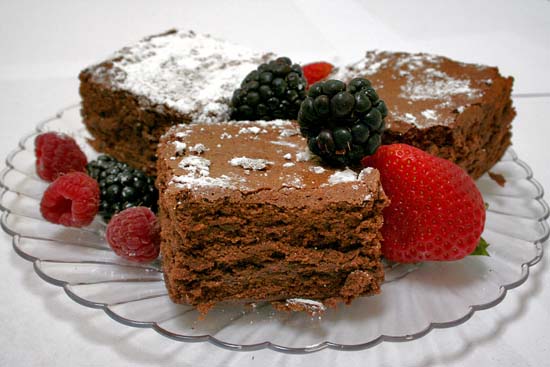With haute eating at their fingertips, students are exploring their surroundings with an appetite. Bruins dive into the foodie culture of Los Angeles by tapping into online resources for the best eats.
Foodie culture is the gastronomical phenomenon in which people enjoy eating well for more than just taste. Often they post pictures of what they are eating on photo sharing sites like Flickr or include them in their reviews on Yelp.com or blogs. Los Angeles offers a range of places for all price ranges, making the whole “˜food for thought’ idea accessible to students. Websites such as Yelp, Chowhound and Zagat offers reviews for Bruins wanting to know ahead of time what they are getting for their money.
Angela Yu, a third-year microbiology, immunology and molecular genetics student, is one self-proclaimed foodie who makes the most of her resources. As an “Elite” member of the Yelp community, Yu finds out about hidden gems before she escapes the Hill’s dining options for some gourmet eats.
“I find these places by word of mouth from my other foodie friends, as well as just searching on Yelp for the type of cuisine I’m looking for,” Yu said.
While being an insider through Yelp’s reviewer community helps to find the secret hot spots around Los Angeles, Yu says that price isn’t what great dining is all about. She works on-campus in order to afford her bills and often cooks at home in her apartment, only eating at high-end restaurants for special occasions.
“When my friends and I go out, we go out for fun, sometimes for special occasions but for the most part, we just like trying new food,” Yu said. “It’s fun and especially if you are with people who enjoy food.”
Colleen Ma, a first-year undeclared student, is new to campus and uses Yelp to see what her surroundings can offer her. “Yelp is there to introduce a restaurant to me,” Ma said. “I’m always surprised by how much Los Angeles has to offer in terms of the amount of diversity there is in this city.”
The exotic and diverse cuisine that Los Angeles restaurants have to offer influences chefs who are even closer to home for Bruins residing on-campus.
“The dining halls consistently attempt to create and execute new dishes, and I’ve even noticed that one of the cafes on campus (has) begun to sell cupcakes,” Ma said.
Dining options on campus try to mimic popular food trends in Los Angeles, but many students crave a change of ambiance. “I have the belief that you only live once, so splurging on a nice restaurant every now and then is fine by me ““ not that I eat at expensive restaurants regularly,” Ma said.
Being a working student, she notes that budget does play a role in how often she eats out. “I do love good food,” Ma said.
Alumnus Jefferson Liou has been a “Yelper” since his days as a full-time Bruin. Currently residing in Santa Monica, he has been on Yelp since his third year at UCLA, and writing reviews since his fourth.
“It definitely changed my experience with the Los Angeles food scene,” Liou said. “It would take years upon years to accumulate such knowledge by word of mouth.”
Although he now works full-time, he remembers the budget qualms of the average undergraduate student. “I’ve worked regularly since high school, and I’ve always loved eating out, so it’s a pretty big part of my budget,” Liou said. “Over the years, as I’ve saved more money, I’ve eaten out more frequently and at more expensive places.”
Delicious plates to whet your palate can be afforded at all levels thanks to international restaurants.
“Typically, the best gems are restaurants where you can eat well for under $25,” Liou said.
Alcoves around Los Angeles such as Little Armenia, Little Ethiopia, Little India, Little Saigon, as well as Koreatown, Little Tokyo and Chinatown, are known for their cheap eats without compromising the authenticity of those cultures’ traditional eats.
The popularity of food trucks is one result of this foodie culture expansion in Los Angeles. There are over 100 trucks tracked on their own websites or via Twitter. Bruins can be “truck chasers” and follow food trucks by monitoring websites such as findlafoodtrucks.com and clustertruck.org. The long lines prove that their cheap and delicious eats are in demand.
Christina Liu, a second-year business economics student, is one of these Internet-savvy foodies. Although Liu doesn’t review the food trucks on her blog, many food bloggers do rave about the variety of ethnic eats that they offer.
“While some people are chasing the trucks, they come to us on campus,” Liu said. “I’ve had a couple of good bites.”
Liu claims to spend her money on food rather than frocks, and with good reason: She regularly updates her blog, “Food, Je T’aime,” with posts of her culinary adventures at local food festivals and trendy upscale restaurants.
“There are a lot of food bloggers in Los Angeles ““ it’s an aesthetic town. People put value on how people look, things look, and restaurants also put a value on how food looks” Liu said. She goes out to eat with other bloggers, each discussing the food over dinner and then posting their reviews online.
According to Liu, customers tend to trust bloggers’ reviews more than websites like Yelp because the critiques that offer their point of view through all their posts and photos allow customers to really see what they’re eating. Liu and Yu both agree that the majority of students don’t have the budget to eat out often. Both claim to have a select group of friends that are willing to accompany them on their culinary adventure. They have also found an alternative for students who tire of the dining halls and crave for a taste of the real world.
